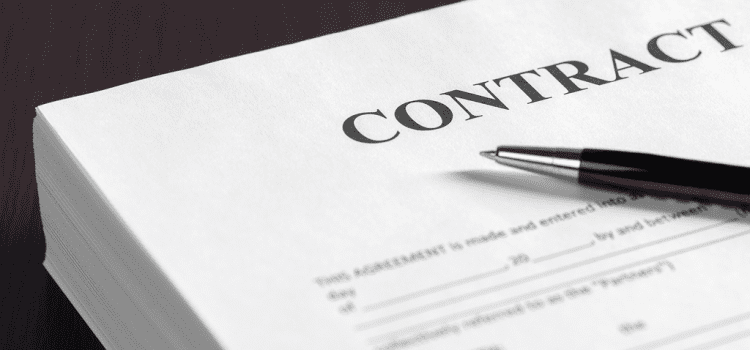So you know you need to have a contract to give out to your clients, but where do you start? Writing something as formal as a contract might seem a bit odd for someone freelancing from home. It is important though, no matter how big or small your business is.
A contract can help protect your interests and act as a record to bring out in the event of disagreements. It’s in your clients’ best interests too as it gives them details in writing that they can refer to when needed.
The most important thing to think of when writing a contract is to make sure it’s clear, covers everything and there’s no room for interpretation. So here are some key points to include to make sure you’re protected:
Terms of the service
Here you should list the details of your services, what you will provide and what you won’t in relation to what the client wants.
Go into detail about the needs of the client and the project as a whole. Make sure you cover everything that you’ve agreed to verbally and make sure the client is happy and willing to sign off on it.
Late fees
First of all, it’s important that you put a payment deadline in your contract. Some freelancers ask for payment upon receiving work, others say 30 days, it’s up to you.
Unfortunately, freelancers are often paid late which can then disrupt cash flow and leave them struggling. Freelancers are often considered low priority on a business’s list of people they need to pay.
So it’s important to put under your payment deadline that any late payments will be subject to additional charges. This is an important warning and (hopefully) deterrent to clients to avoid them paying late.
It’s up to you how much you charge, or what percentage of the original fee you decide on. Hopefully, you won’t need to charge it but if so at least you’re compensated for your wait.
Kill fee
This is another fee to put in your contract that will protect you if the client doesn’t fulfil their end of the contract. If the client decides to cancel the project and you’ve already set aside time and worked on it, you still will need to be paid at least part of the fee.
This will depend on how much work you’ve already done but even so, you’ve set aside time for this client. The chances of you replacing the income you would’ve got from them on short notice is unlikely so you’re going to be losing money. Because of this, many freelancers will set their kill fee high to avoid people backing out.
Edits or revisions
Most freelancers will include one or two revisions of the work in the price to make sure the client is happy with the work. Make sure you put this in your contract so the client knows what to expect.
It’s important for you to be able to distinguish between the client asking for revisions and them asking for extra work. If they end up asking for anything extra, you’ve found yourself a scope creep but at least you’ll have your contract to show them if this is the case.
Extra work
Scope creeps will ask for little bits of work for free on top of what you’ve already done because it’s “not much extra”. However, these people tend to ask for it over and over again if you agree once. So it ends up adding up to a lot and before you know it, you’ve lost hours on unpaid work.
Put a clause in your contract clearly stating that any extra work not covered by the original agreement will be charged extra. It’s only fair and will hopefully deter clients from asking for free stuff.
Have we missed anything out? What else would you add into a contract? Let us know your thoughts.







